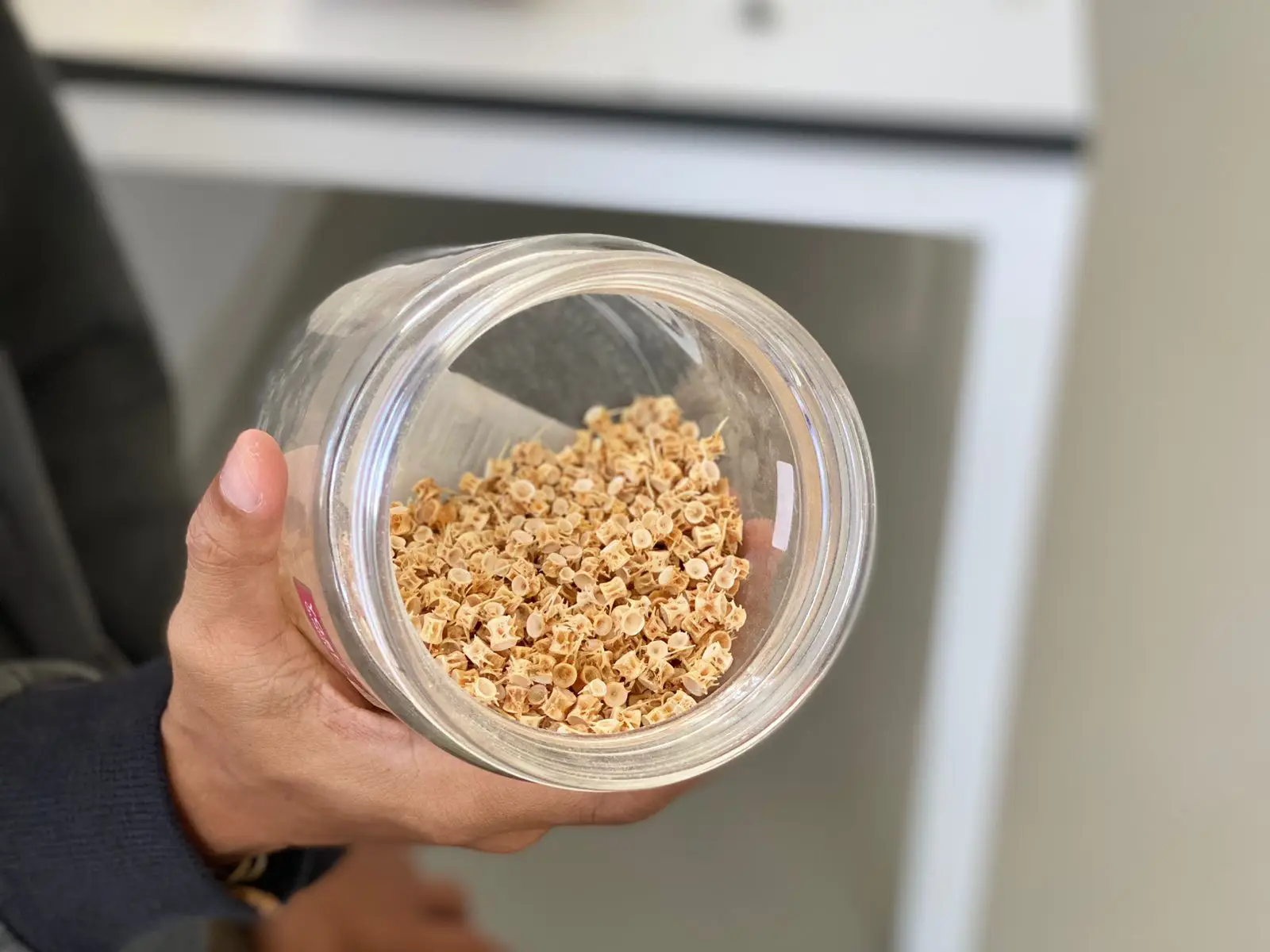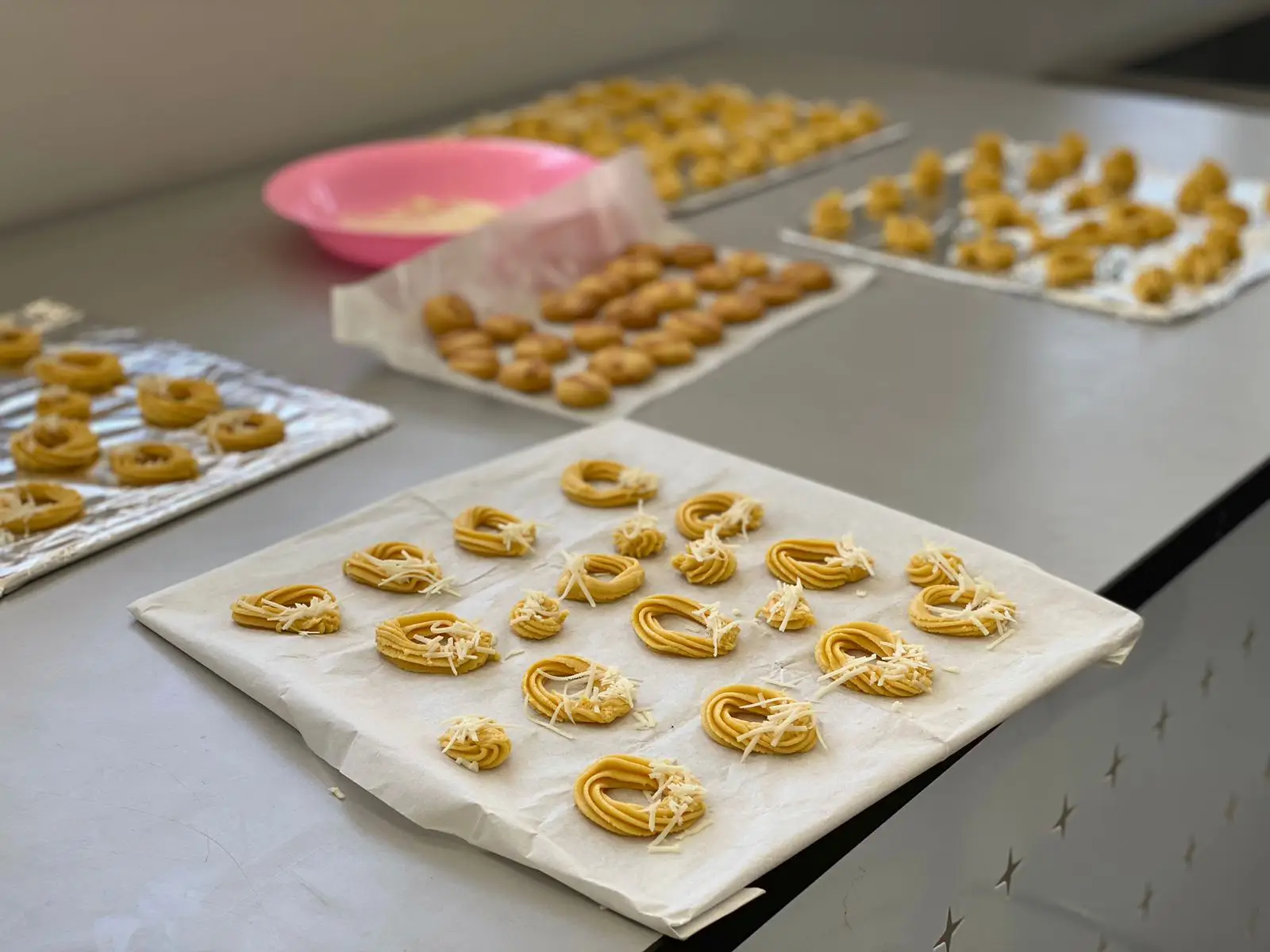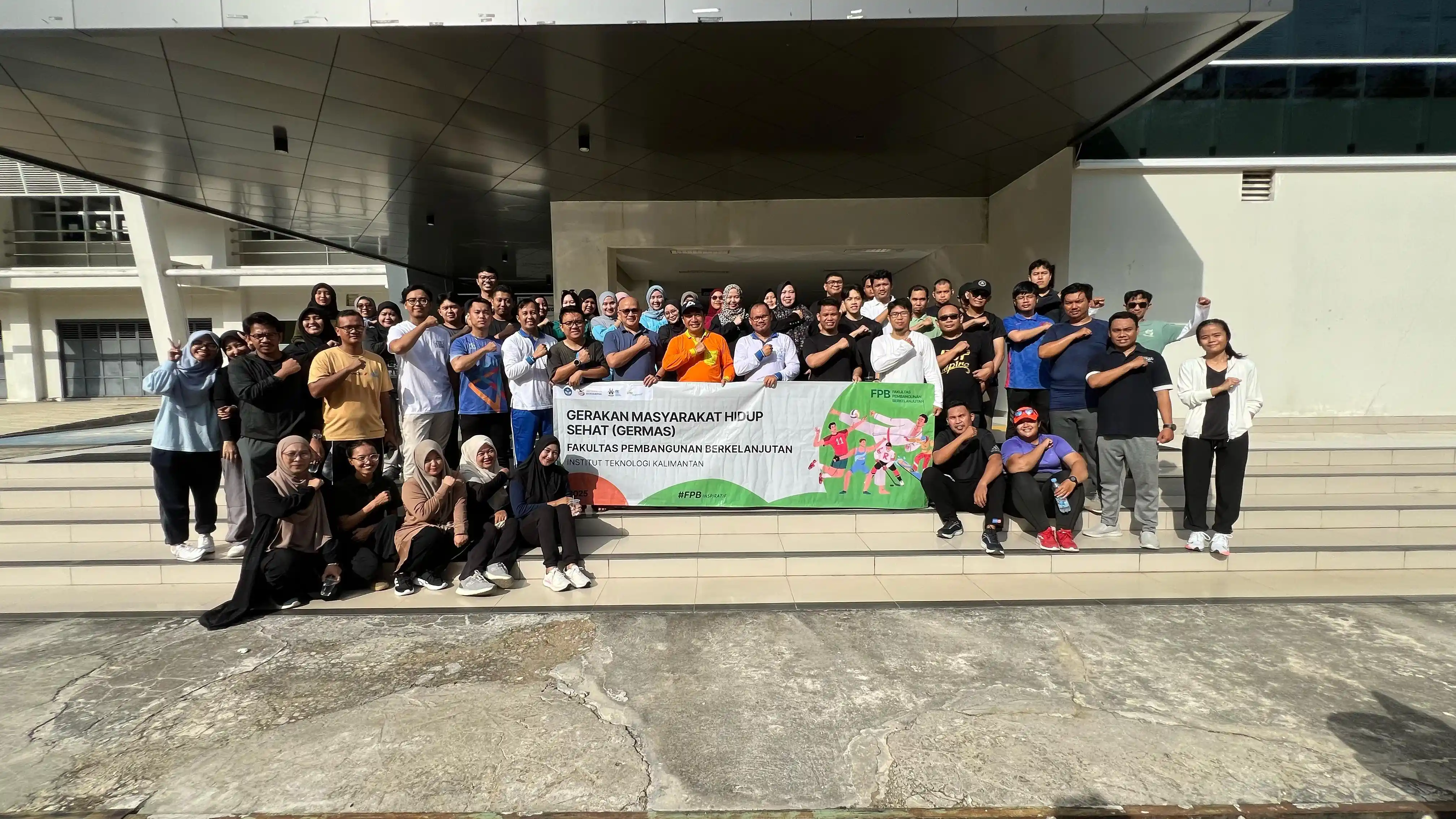Detail Berita
Production of Savory and Chocolate Cookies Using Fish Bone Flour from Bandeng
Isi Artikel
In an effort to optimize the utilization of fishery resources and address waste issues, a practical session on making cookies with the addition of fish bone flour from bandeng has been conducted. This practical session not only provides hands-on experience for students but also offers solutions to the waste generated by the fishing industry and contributes to improving community nutrition.
The bones of bandeng fish are often regarded as waste after the flesh is removed for consumption. However, through proper processing, these bones can be transformed into a nutrient-rich flour. Fish bone flour is made from pure, dried bones that are ground and sifted until they become a fine powder ready for use.
The high calcium and phosphorus content in bandeng fish bones makes them a highly potential raw material for enhancing the nutritional value of food. This is particularly relevant in the context of health issues faced by the community, such as osteoporosis and stunting. By incorporating fish bone flour into food products like cookies, we can help increase calcium intake, especially for children and adolescents in their growth period.
This practical session resulted in two types of cookies: savory cookies and chocolate cookies. The cookies produced from this session are not only delicious but also rich in nutrients. The addition of fish bone flour increases the calcium and phosphorus content, which are essential for bone health. By offering more nutritious food, it is hoped that we can help reduce the risk of osteoporosis and stunting in the community.
The practical production of savory and chocolate cookies with the addition of fish bone flour represents an innovative step in utilizing fishery waste and improving community nutrition. This activity not only provides practical experience for students but also contributes solutions to pressing health issues. Therefore, it is important to continue developing and applying fisheries technology in more beneficial and sustainable forms.
Isi Artikel
Tags
Education Campus Student Lecturer AchievementTags
Education Campus Student Lecturer AchievementBerita Terbaru
.webp) News
News
Students from Across Indonesia Gather in South Sulawesi for National KKN, ITK Joins In!
Students from various universities across Indonesia gathered in South Sulawesi for the 13th National Community Service Program (KKN) focusing on cultural tourism, world heritage, and community service, with participation from the Kalimantan Institute of T
.webp) News
News
ITK and Kominfo Strengthen Digital Competencies of Vocational Graduates Through VSGA Certification
ITK and Kominfo Banjarmasin successfully held the VSGA Program Competency Certification on July 2, 2025, strengthening vocational graduates' digital competencies through collaboration and examinations.
.webp) News
News
ITK successfully hosted ECONIQ Chapter 2 from June 26 to 30, 2025, an event showcasing the digital product innovations of ITK Digital Business students and strengthening collaboration through an expo, UI/UX workshop, and a "Future Unlimited" themed closin


.webp)

.webp)